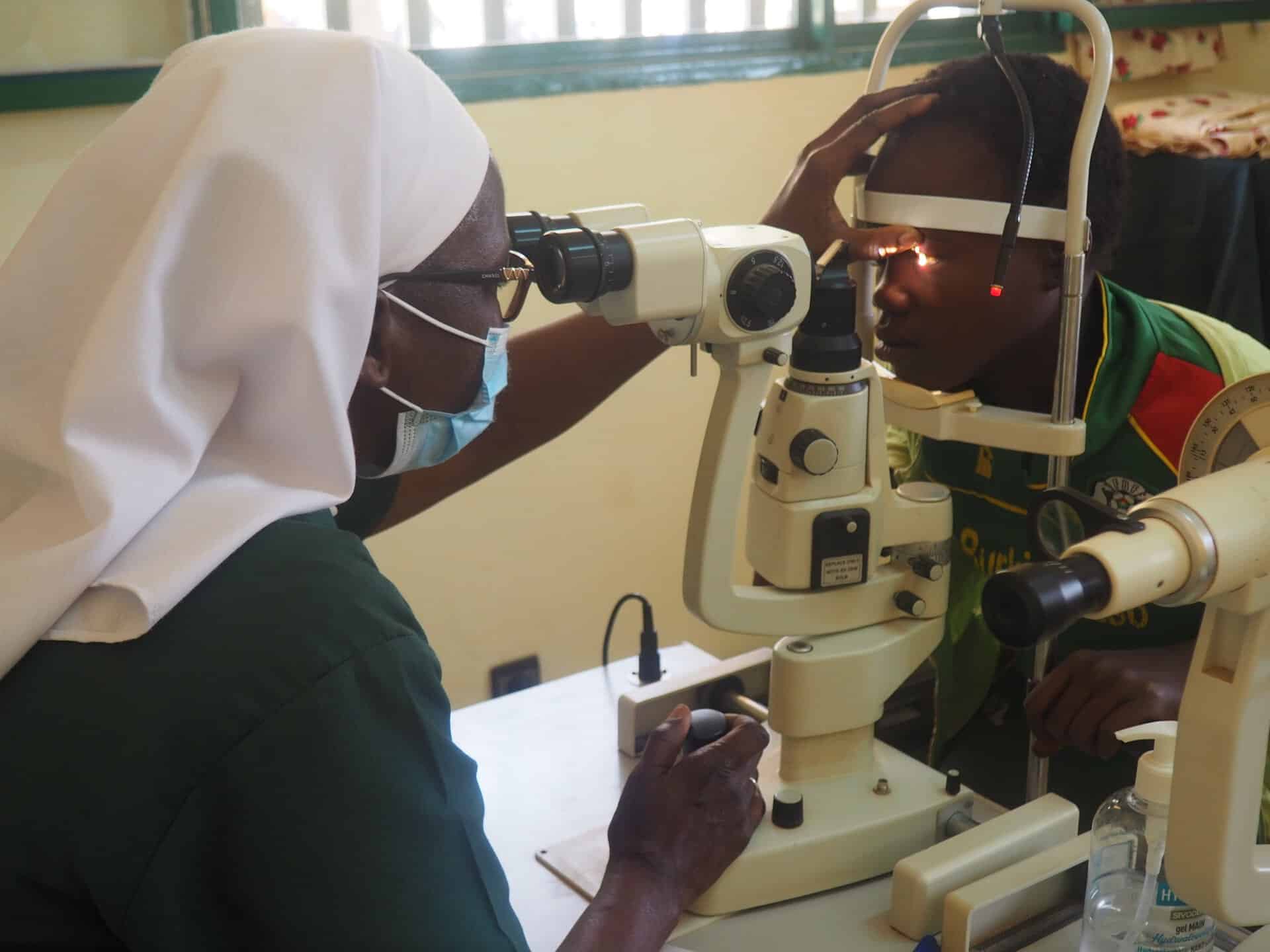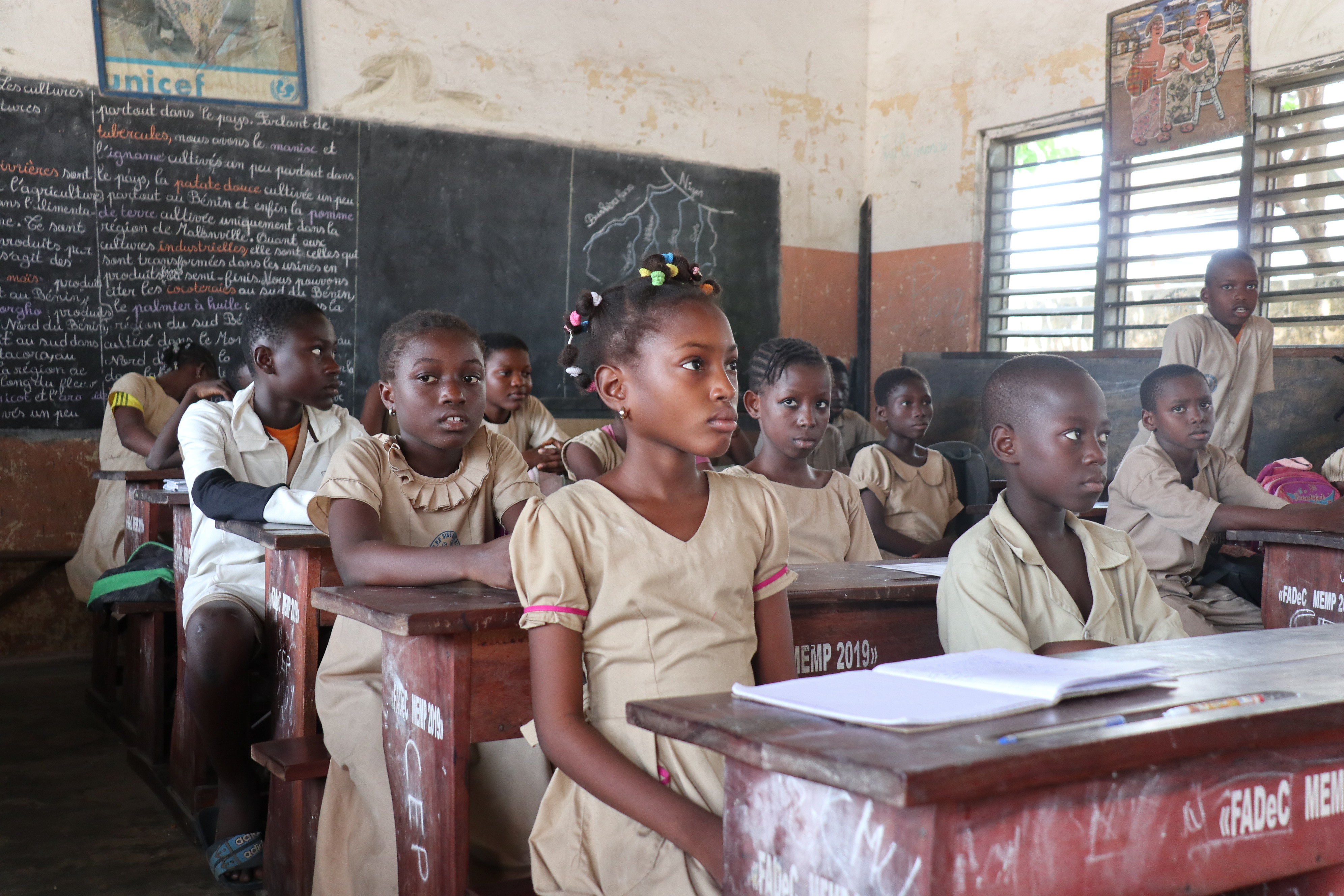Photo credit: Global Partnership for Education
The Global Partnership for Education launched a campaign on 7 October to raise $5 billion from governments for education in developing countries. This is its most ambitious campaign to date. France, contrary to its past habits, has already promised to be a major player in this campaign. But what exactly is it about?
Politicians like to repeat that education is essential and that every effort must be made to ensure that all children receive a free education. The latest promise was made in 2015, when 193 heads of state, meeting at the UN General Assembly, agreed that by 2030 every child should have access to 12 years of free, quality education. But we are not there yet. 258 million children are still excluded from education and 617 million lack minimum educational skills even after several years in school. One of the reasons for this failure is the chronic under-funding of education over the years.
Who funds education?
To ensure quality primary and secondary education for all children, UNESCO recommends that low- and middle-income countries allocate 4-6% of their GDP to education. Unfortunately, this is far from being the case. Without adequate funding, quality education for all is impossible: infrastructure, school materials, the recruitment of well-trained teachers (among other things) are incompressible expenses for achieving quality education for all.
Another possible source of funding is the aid that rich countries can provide to the least developed countries. Donor countries, namely the 30 Aid Committee OECD Development Co-operation Committeeincluding France, have committed to contributing 0.7% of their GDP to official development assistance each year and to devoting part of this money to education. This aid makes it possible to finance the only multilateral fund dedicated to education in developing countries: the Global Partnership for Education (GPE).
What is the Global Partnership for Education?
The SME is now one of the largest donors to basic education in low-income countries. Since its inception in 2002, it has already helped to get 160 million children into school. On 7 October, at an event broadcast live on Facebook, he appealed to world leaders for funding with a simple message " Raise your hands ", or 'raise your hand and fund education' with the aim of raising $5 billion over the next 5 years. These funds will be raised at a summit in the UK in mid-2021. British Prime Minister Boris Johnson, who will chair the G7, and Kenyan President Uhuru Kenyatta will co-chair the summit and urge world leaders to invest in children's schooling and ensure better reconstruction of their education systems. France, in the person of Emmanuel Macron, has already committed to be a major player in this campaign and to increase mobilisation around the financing of the SME. In 2018, France, after years of disengagement (as a reminder, France gave nothing in 2014, barely 1.1 million dollars in 2015, 8.4 million dollars in 2016), has committed to paying 200 million euros to the SME. This year, it should therefore at a minimum double this commitment in view of the difficult situation in education today.
An ambitious and urgent post-COVID campaign
In 2014, the SME aimed to raise $3.5 billion, in 2018 3.1 billion. The target of $5 billion is therefore much higher than in previous years, and for good reason. The COVID-19 crisis and in particular the containment measures taken to deal with it have deteriorated the situation in education: at the worst moment of the crisis, 1.6 billion children, including 760 million girls, were deprived of education, more than 450 million of them, due to a lack of access to digital technology, did not have access to alternative forms of learning and remained deprived of learning for months, and it is estimated today that 24 million of them, including 11 million girls, will not return to school. Faced with such a challenge, the SME must increase its actions, and has already launched a $500 million COVID-19 emergency fund to ensure the continuity of learning for students in low-income countries. But rebuilding more resilient and effective education systems will require much more. The $5 billion requested by the SME will ensure learning for 175 million children in 87 low-income countries. In the longer term, this investment could bring an additional $164 billion to the economies of low-income countries, lift 18 million people out of poverty and protect two million girls from early marriage.






